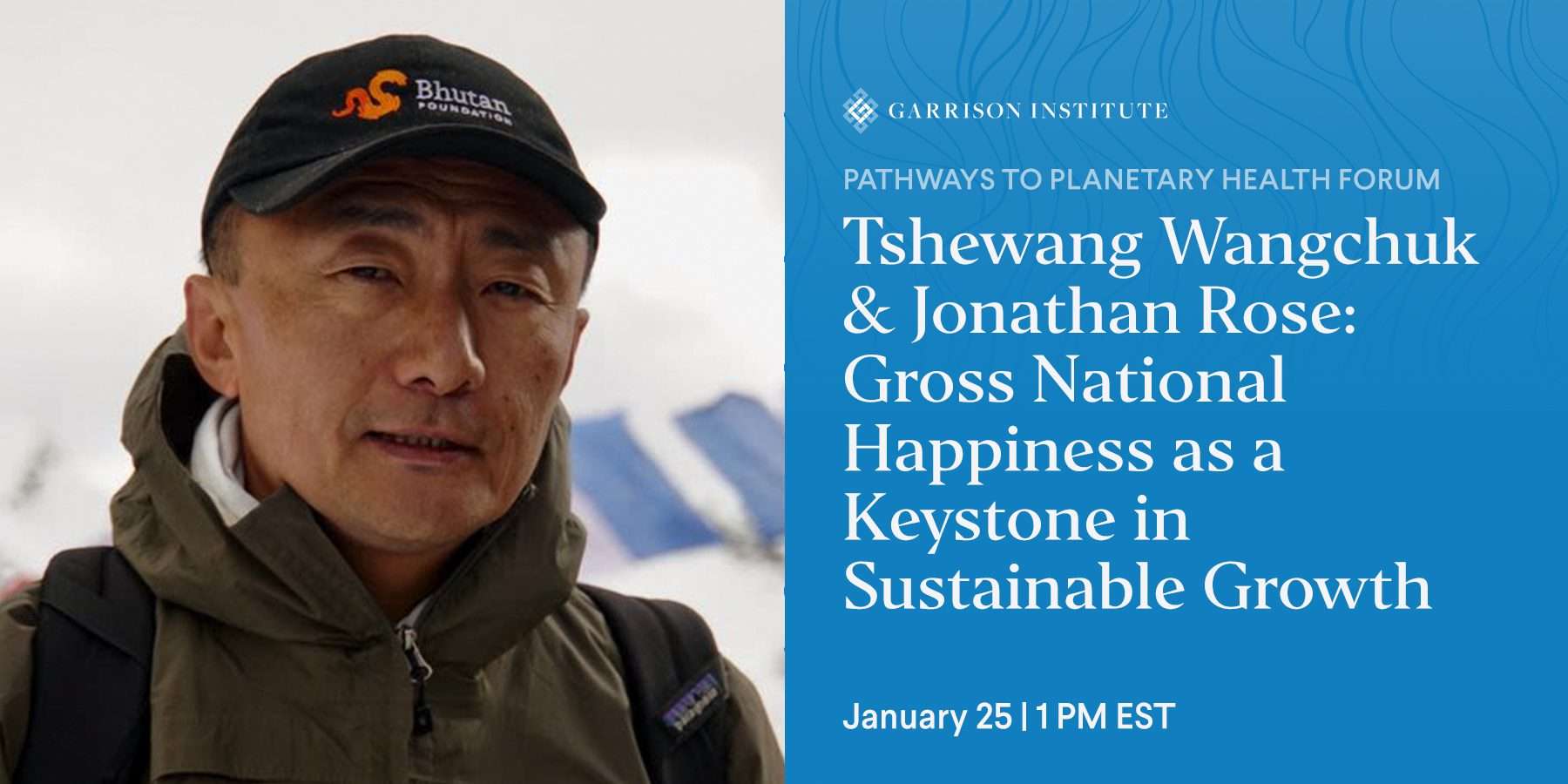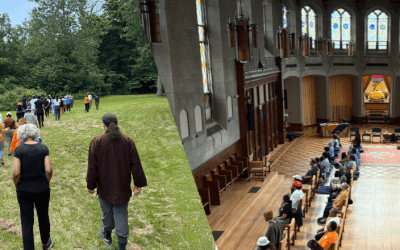On January 25, 2023, Tshewang Wangchuk, Executive Director of the Bhutan Foundation, joined Garrison Institute co-founder Jonathan F.P. Rose to discuss how Bhutan is developing with a guiding principle of Gross National Happiness.
According to the World Economic Forum, Bhutan has considerably and measurably improved its economic, environmental, social and governance situation in the last four decades, and is on the verge of graduating from “Least Developed Country” status this year. The Bhutan Foundation is an independent and objective partner to the King of Bhutan and its government, addressing:
1) The conservation of the environment
2) Preservation of culture
3) Equitable development
4) Good governance
5) Creating greater awareness and understanding of Bhutan in the United States and the World
According to Wangchuk, Bhutan has been an trendsetter and innovator in the area of biodiversity, with a constitution that mandates that at least 60% of the country stays under forest cover at all times.
“People are talking about 30×30 right? … Bhutan has already done a lot of that, before it was fashionable to do so. There is a lot of conscious leadership that has guided us to do this, and these areas are truly magnificent.”
Wangchuk credited the fourth King of Bhutan for coining the concept of Gross National Happiness in the 1970s.
“GDP growth alone doesn’t really express or explain situations like whave in Bhutan. It’s a wholesome development of human society including mental and spiritual well-being, a far better and inclusive measure of human development… it was then taken up by academics and politicians down the road. His majesty the King succinctly described it as development with values.”
Wangchuk and Rose’s conversation went on touch on Bhutan’s medicine programs, which combines traditional and allopathic medicine approaches in a distributed system. They also spoke about Bhutan’s green energy systems, which combine a wealth of hydropower capacity (most of which is exported to neighboring India) combined with solar installations that power remote villages and allow them to have a higher standard of living.
The talk concluded with an exploration of what Mahayana Buddhism means to Bhutan’s people and leadership.
“There’s a lot of spirituality entwined in our leadership. Whether you call it compassionate or enlightened, it’s a part of life. It’s how we have come along since we knew Bhutan as a country from the 1600s… At the grassroots, Buddhism is a way of life.”
This interactive online event was part of a continuing series in the Garrison Institute’s Forum on Pathways to Planetary Health (PPH). Pathways to Planetary Health explores the moral, ethical, and human behavioral dimensions of the search for regenerative solutions, including Half-Earth, Regenerative Economics, Ecological Civilization, and The Common Good.




